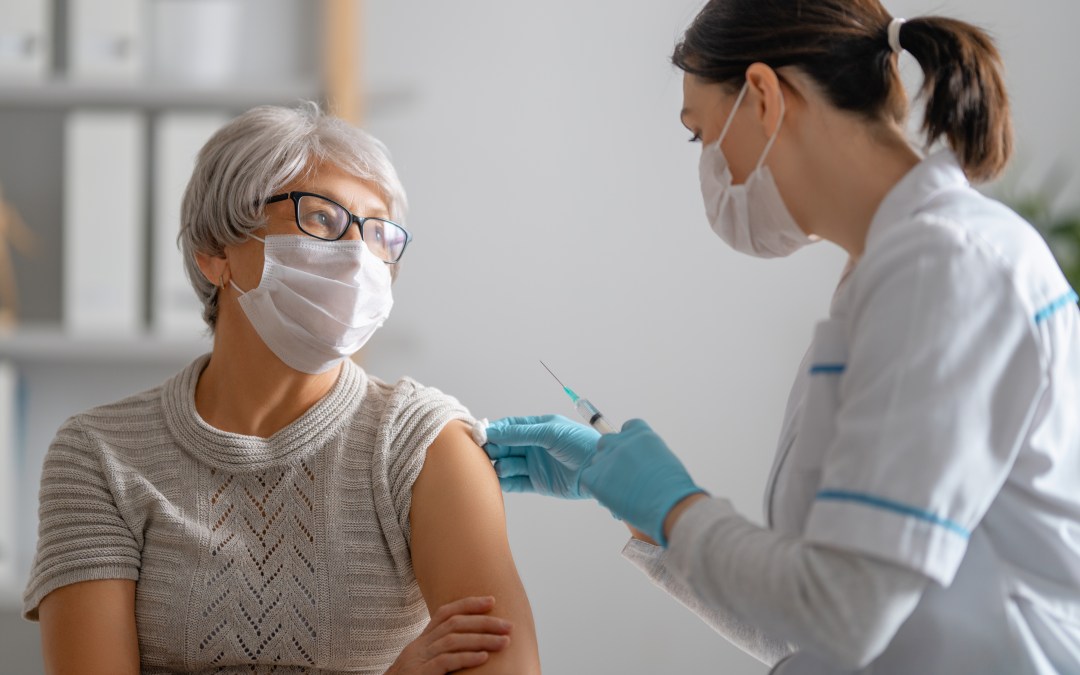Flu shots are by far the best preventive measure against influenza. And that’s even more important as the COVID-19 pandemic continues to develop.
Getting a flu vaccination leads your body to generate flu-fighting antibodies and drastically reduces your risk of contracting the illness. It’s not foolproof. A number of influenza strains circulate each year, and on average the shot cuts your chances of getting the flu by approximately 50%. Also, it takes about two weeks from the time of vaccination for a full immune response.
However, the shot is still the best prevention available. Due to COVID-19, this year’s flu season could potentially be worse than usual, and the healthcare system is particularly dependent on everyone doing what they can to reduce their risk for both illnesses to avoid overcrowding hospitals. Here’s what you need to know.
Can you get the flu from the flu shot?
NO. Contrary to popular belief, flu shots do not give you the flu. They contain inactivated viruses that trigger your immune system’s production of antibodies, but they cannot give you the illness itself. There could be mild reactions to the shot including soreness or swelling, slight fever, achiness, and other side effects. But the vaccine does not cause the flu, and potential discomfort following vaccination is far less severe than actual flu symptoms.
Why Flu Shots Are So Important During COVID-19
Last year, due to widespread social distancing and mask-wearing, we had one of the mildest flu seasons in recent history. But that only means this year could be especially dangerous.
Two Seasons in One
In a typical year, there is some carryover influenza immunity from vaccination and natural exposure the prior year. But with very little flu circulating last year, and protection from the 2019-2020 flu season virtually gone, this year effectively acts as two seasons in one.
Kids as Carriers
Many small children will be facing their first significant flu season ever, just as they return to in-person school and daycare. With little or no previous exposure to influenza, they’re primed to pass the virus among each other and to their families.
Complacency After COVID
Many people who received COVID-19 vaccinations may mistakenly believe it protects against flu or may give less priority to flu shots. But the fewer people who are vaccinated, the more vulnerable everyone is to new strains and illness.
Two Viruses, Two Vaccines
While they may produce overlapping symptoms, COVID-19 and influenza are caused by different viruses. Therefore, neither vaccine covers for the other. You need both to stay healthy and protect those around you.
You Can Take the Vaccines Together
It’s totally fine to receive your COVID-19 vaccine and flu shot on the same day, along with any other inoculations you may need. (Of course, you will still need a second dose of the Pfizer or Moderna vaccine in the future.)
Both Vaccines Help Your Community
As COVID-19 continues to develop, it’s crucial not to overburden our healthcare system. Getting your flu shot, along with your COVID-19 vaccine, helps protect hospitals and their patients.

